
Hiro Nori Ramen Irvine a MICHELIN Guide Restaurant
Nori is sometimes served with ramen as a sheet that can soak on the edge of the bowl to be munched on whole as it absorbs broth, or to be ripped up and sprinkled over top. Nori soaked in ramen broth acquires a pleasantly chewy texture and its light, briny seaweed flavor pairs very well with a rich and salty ramen broth..

Nori Recipe & Nutrition Precision Nutrition's Encyclopedia of Food
Miso Ramen topped with chashu, sweet corn, ramen egg, shiraga negi, and nori. Non-Traditional, Creative Toppings . You can certainly add your own flairs to your homemade ramen for an exciting twist. Here is a list of quick proteins you can add to bulk up your ramen when you're in a hurry. Bonus: Many of them can either be prepped ahead or.

Nori Ramen Newark, NJ 07102
Ramen is a soupy noodles type of dish which is sometimes topped with some seaweed such as nori. Nori is added to ramen to improve its flavor and texture. Some people believe that adding nori to ramen makes it more flavorful, while others believe that the addition of nori makes ramen less authentic.

The Best Vegetarian Ramen Recipe Lemon Stripes
Kanten (agar agar) 1. Nori. Nori is the instantly-recognizable dried seaweed that's wrapped around onigiri and certain types of sushi. It's made in a similar process to paper, with the seaweed being cut up into fine pieces after harvesting and then pressed into very thin sheets to be dried and roasted.
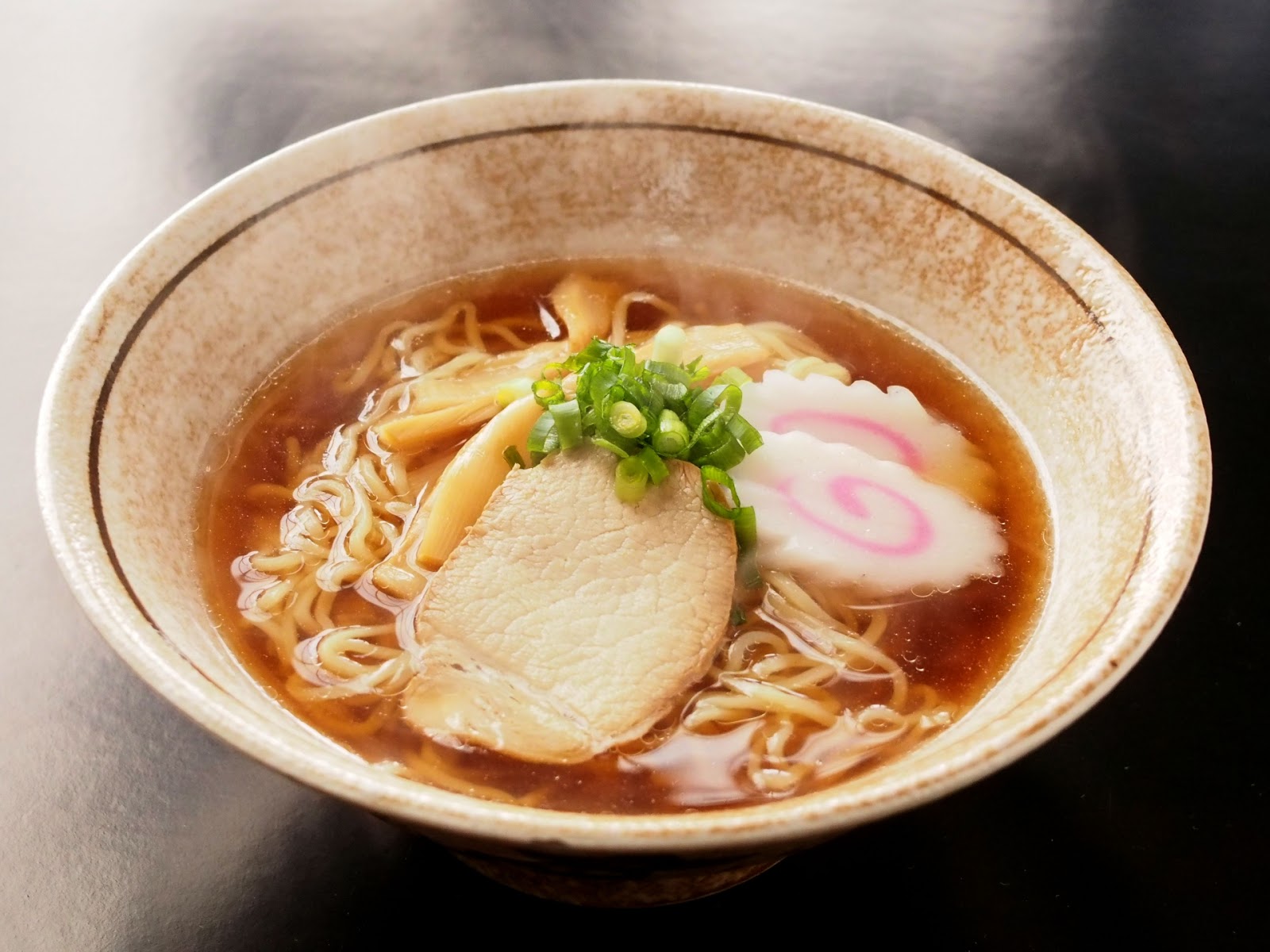
4 types of popular Japanese ramen
Nori is the Japanese phrase for edible seaweed, although it is now recognized around the globe as a dried 7-inch by 8-inch sheet of processed nutritious red algae which is marine vegetation that grows on rocks in the shallow cold-water sea. Nori has been a popular meal in Japan (see also, ' What is the Most Popular Meal for Christmas in Japan.

What Is Nori in Ramen? Cooking Detective
What is nori and how is it typically used in ramen? Nori is a type of edible seaweed that is commonly used in Japanese cuisine, including ramen. It is often used as a garnish or topping for ramen to add a subtle umami flavor and a satisfying texture to the dish. Can nori be added to ramen as a topping?

How to Make Authentic Japanese Ramen at Home (Hint It Doesn’t Come in
Guide to Ramen Varieties From Tokyo-style to Hakata-style, here's something for you to noodle over. By J. Kenji López-Alt Updated August 20, 2023 Serious Eats / J. Kenji López-Alt In This Article Classifications for the Broths Oils and Other Seasonings What Type of Noodles Are Ramen? Ramen Toppings Regional Japanese Ramen Variations

Nongshim Shin Ramen 4.2 oz (120 g) Well Come Asian Market
In the west, nori is the most well-known type of edible seaweed, but there are actually many different types, each with their own flavours and textures. The six main types of seaweed that you will come across in Japan are: Nori (海苔): Dried laver sold in sheets, usually (but not always) salted.

Hiro Nori Ramen a MICHELIN Guide Restaurant in California
Nori is a type of edible seaweed preparation that comes in very thin rolled sheets like paper. It's popular as the wrap for sushi and onigiri, as well as in spice blends such as furikake and togarashi. Nori is one of the eight edible seaweed types generally consumed in Japan and in other Asian regions as both a snack and a meal topping.
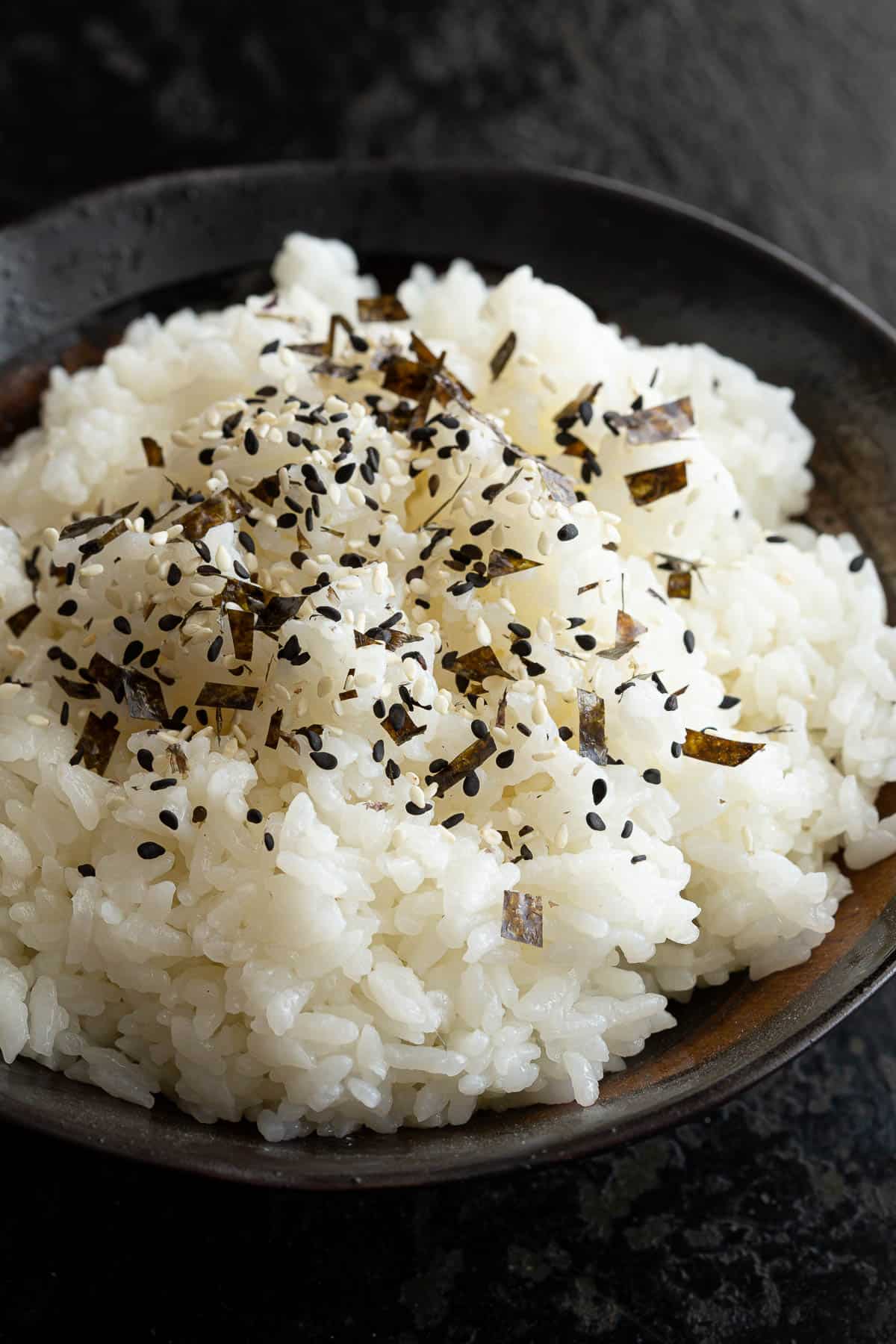
Quick Japanese Rice Seasoning Nori Komi Furikake Wandercooks
Nori is a fat-free, alkaline food rich in protein and antioxidants. As well as containing various vitamins and minerals, it is rich in iodine, which is essential in hormone development. A single nori sheet has the same amount of calcium as 20ml of milk or one egg. It's also high in dietary fiber, which can aid digestion, and low in calories.
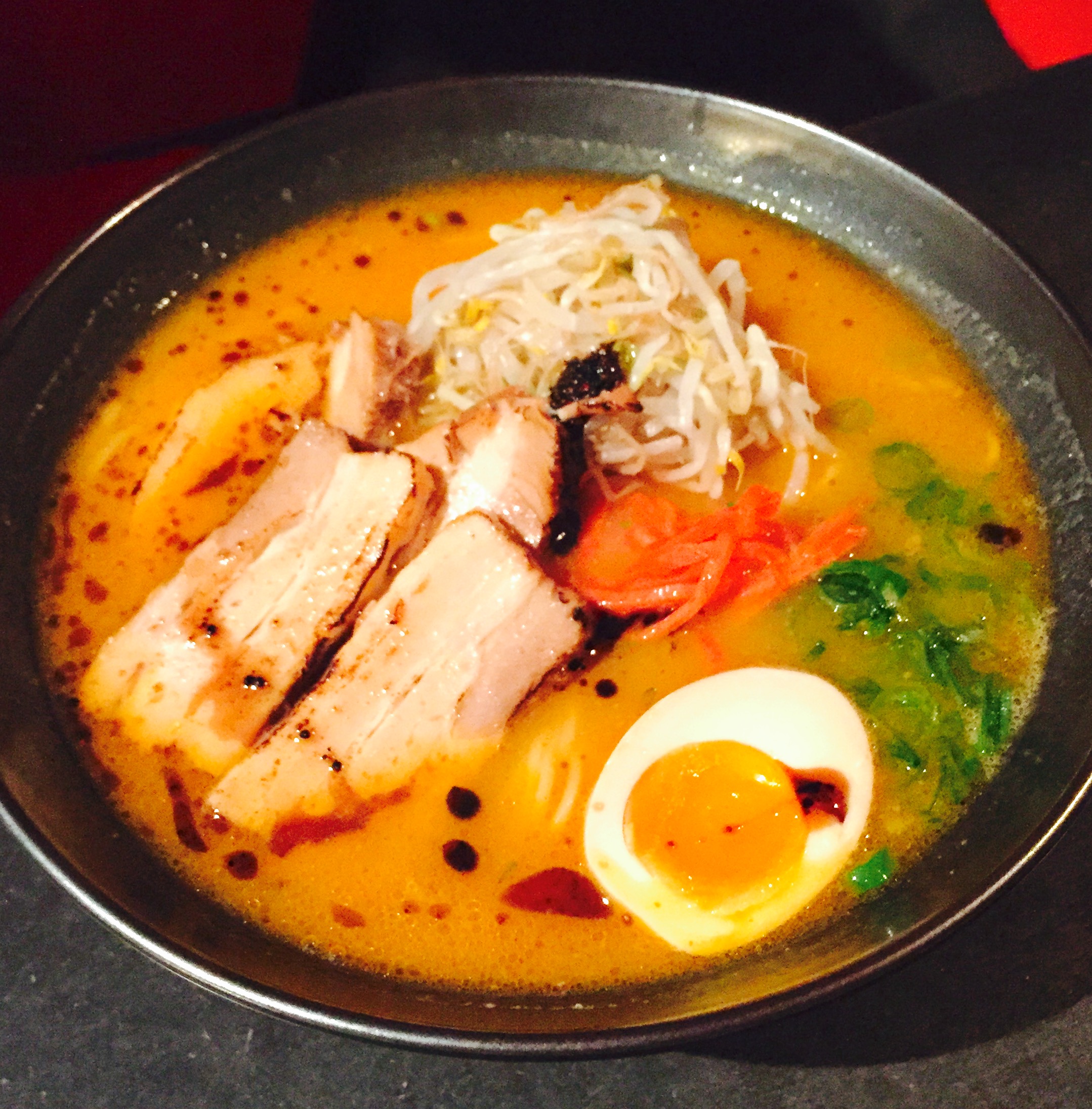
Looking for real japanese ramen? Blue Light Yokohama
Nori ( 海苔) is a dried edible seaweed used in Japanese cuisine, made from species of the red algae genus Pyropia, including P. yezoensis and P. tenera. [1] It has a strong and distinctive flavor, and is often used to wrap rolls of sushi or onigiri (rice balls).

Where to Buy Nori Sheets and Find Them in the Grocery Store (2023)
What is Ramen? Ramen, beyond its often-misunderstood reputation as a quick and simple meal, is actually a dish steeped in cultural heritage and culinary artistry. The combination of ingredients that make up a bowl of ramen can vary greatly from region to region and from chef to chef.
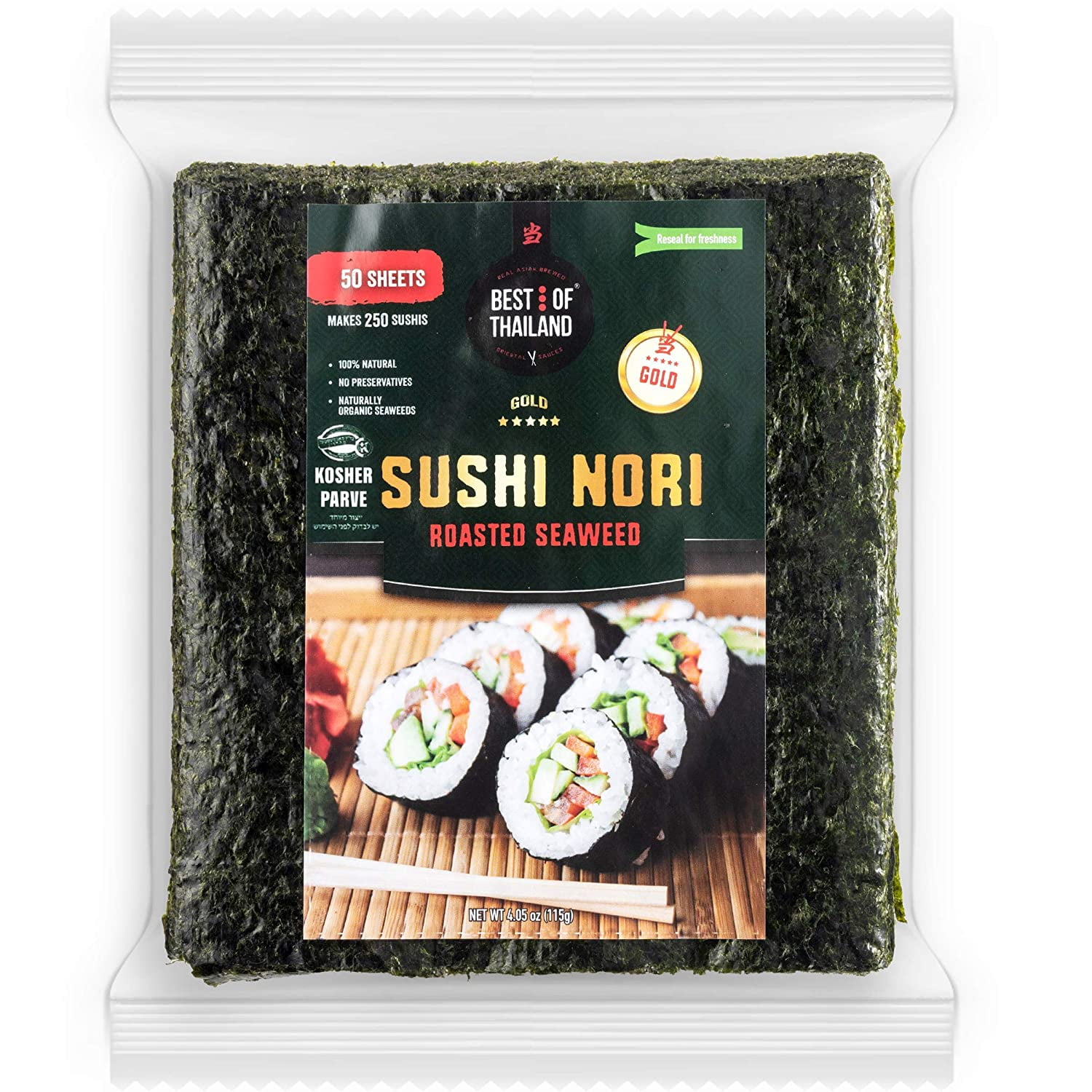
Best of Thailand Organic Sushi Nori Seaweed Sheets 50 Full Nori Sheets
What is nori? If you've ever eaten a sushi roll, nori is the dried seaweed that's used to wrap the vinegar-seasoned rice and raw fish or other fillings. In addition to wrapping sushi rolls and onigiri, nori is typically added to ramen, cold soba noodles, salads, and on top of rice as furikake.
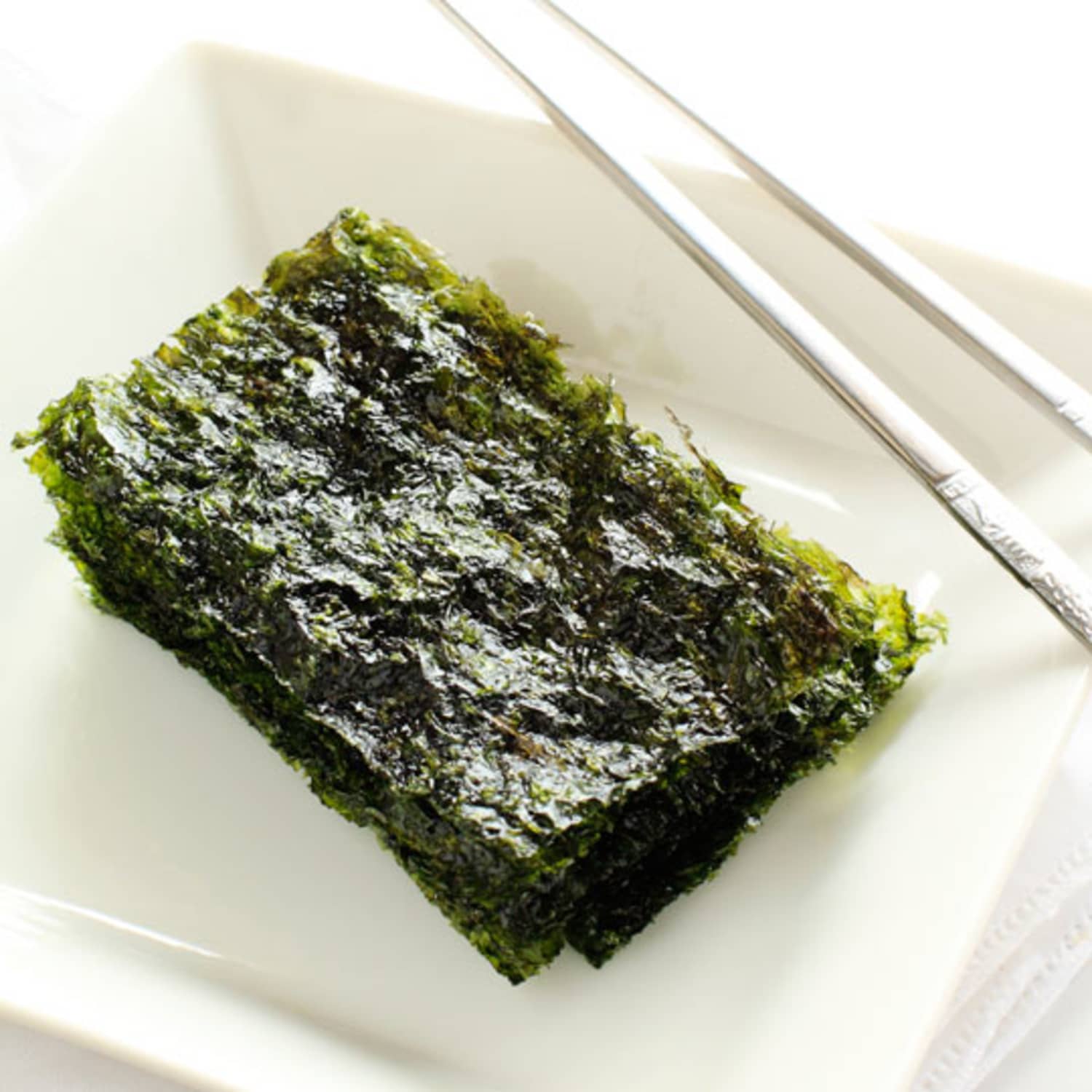
Urban Platter Sushi Nori Sheets (Roasted Seaweed Laver), 25 Grams Pack
Nori cannot be the star of ramen but is an excellent supporting actor. Do you know why nori is in ramen? The answer is: A lot of soba chef changed their careers and became ramen chefs when ramen shot to popularity in Tokyo.

What is nori made of. Top 10 best facts exoticfoodstock
Nori is a traditional Japanese food used in various dishes, including rice balls, sushi, and even noodles such as ramen. Nori (written as 海苔 or just のり in Japanese) is dried and pressed sheets of edible seaweed. It is also often translated in English as "laver".
Tonkotsu ramen with black garlic oil at Hiro Nori Craft Ramen in Irvine
The Nori adds a savory flavor to the rice and helps to keep the onigiri together. It is used to wrap rice balls, either around the outside or as a filling. Read this article to learn more about Japanese Onigiri. Ramen: In many ramen restaurants, a sheet of Nori is placed on top of the soup as a garnish. The Nori provides a slightly salty and.